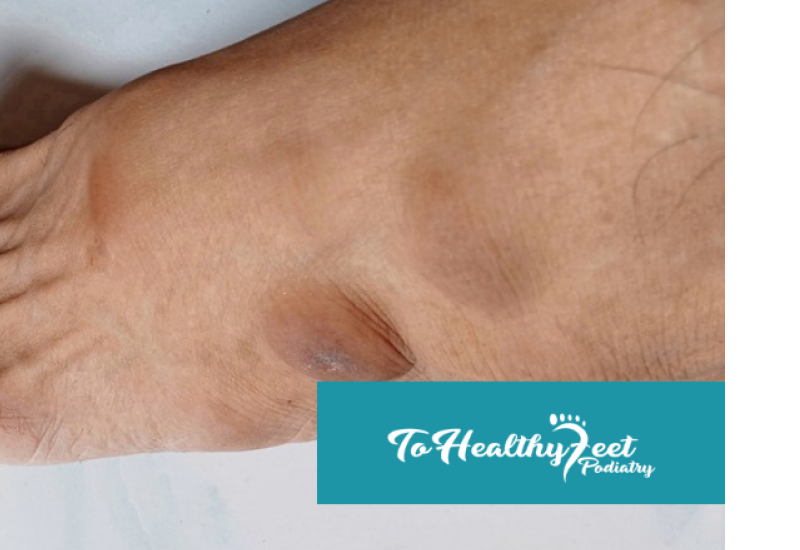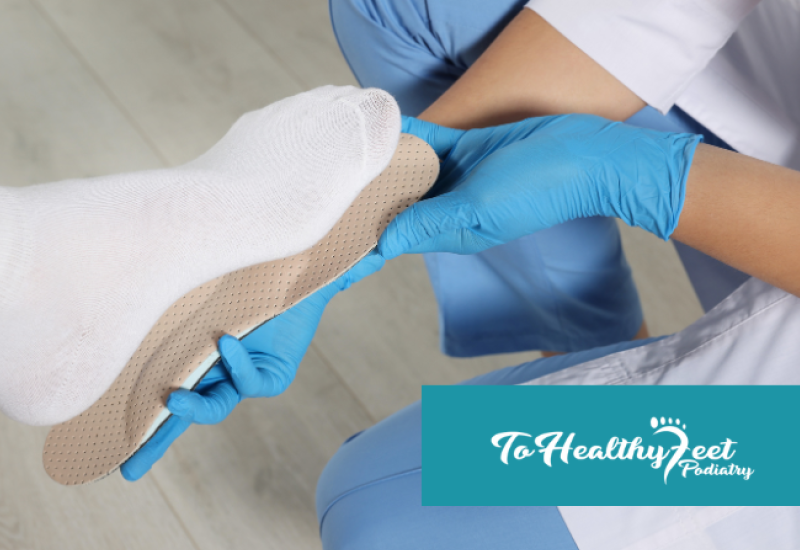As a marathon runner in New York, you push your body to its limits, striving for personal bests and enduring long training sessions. However, the intense physical demands of marathon running can sometimes lead to foot problems, one of which is Morton’s neuroma. This painful condition, affecting the nerves between the toes, can significantly impact your training and race performance. Recognizing the early signs of Morton’s neuroma is crucial for managing it effectively and getting back to your running routine. In this blog, we'll explore the top three signs that you might have Morton’s neuroma and how to address them.
1. Sharp, Burning Pain in the Forefoot
One of the most common signs of Morton’s neuroma is sharp, burning pain in the ball of the foot. This pain often radiates between the third and fourth toes and can feel like a burning or tingling sensation. It usually worsens during or after physical activity, especially when running or walking long distances.
The pain is caused by the thickening of the tissue around the nerve that runs between the toes, putting pressure on the nerve and leading to discomfort. If you find yourself frequently experiencing sharp pain during or after your runs, it’s essential to pay attention and consider that Morton’s neuroma might be the culprit. Seeking prompt evaluation from a podiatrist can help prevent the condition from worsening and affecting your performance.
2. Tingling or Numbness in the Toes
Another significant sign of Morton’s neuroma is tingling or numbness in the toes, particularly in the area between the third and fourth toes. This sensation can be intermittent or constant and often occurs alongside the sharp pain mentioned earlier. The tingling or numbness is a result of the affected nerve being compressed, which disrupts normal nerve function.
For marathon runners, this symptom can be particularly concerning as it affects your ability to maintain proper balance and control while running. If you notice that your toes are frequently tingling or feeling numb, it’s crucial to address these symptoms early. Ignoring them may lead to more severe issues and impact your overall running performance.
3. Feeling of a Lump or ‘Pebble’ Underfoot
A less commonly known but telling sign of Morton’s neuroma is the sensation of a lump or ‘pebble’ under the ball of the foot. Many runners describe it as feeling like there is something stuck in their shoe, which can be quite distracting and uncomfortable during runs. This sensation is due to the enlargement of the nerve tissue, which can create a palpable mass in the affected area.
If you start to feel a persistent lump or discomfort that seems to be located under your foot, it could be a sign of Morton’s neuroma. This symptom, coupled with the other signs mentioned, should prompt you to seek a professional diagnosis. Early intervention can help manage the condition and keep you on track with your marathon training.
Recognizing the signs of Morton’s neuroma early is vital for marathon runners. Sharp, burning pain, tingling or numbness in the toes, and the sensation of a lump underfoot are key indicators that you might be dealing with this condition. Addressing these symptoms promptly can prevent the condition from worsening and allow you to continue your training with minimal disruption.
At To Healthy Feet Podiatry in New York, we understand the unique challenges faced by marathon runners and are here to provide the support and treatment you need. If you’re experiencing any of these symptoms, don’t hesitate to call our team. With early diagnosis and appropriate management, you can keep your feet healthy and continue pursuing your marathon goals with confidence.
Written on behalf of To Healthy Feet Podiatry.
FAQs
Q: What causes Morton’s neuroma in marathon runners?
A: Morton’s neuroma is often caused by repetitive stress and pressure on the foot, which can occur during long runs or from wearing inappropriate footwear. Factors like foot biomechanics and excessive running can contribute to its development.
Q: What are the treatment options for Morton’s neuroma?
A: Treatment options range from conservative methods like wearing custom orthotics and changing footwear to physical therapy and medications for pain relief. In severe cases, more invasive treatments like corticosteroid injections or surgery may be necessary.
Q: Can Morton’s neuroma affect my marathon performance?
A: Yes, Morton’s neuroma can cause significant pain and discomfort, potentially affecting your running performance. Early diagnosis and treatment are crucial to managing symptoms and minimizing the impact on your training and races.




